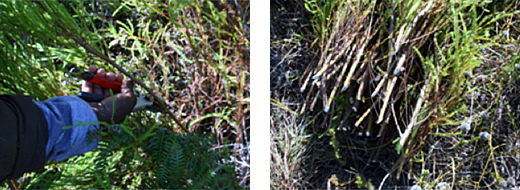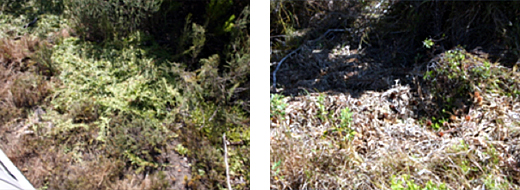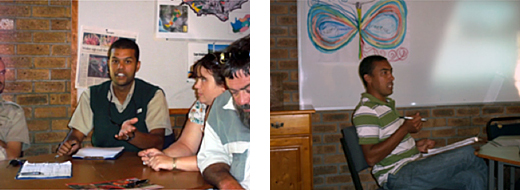Key Findings

Key Findings
- Training does make a significant difference to the ecological soundness of harvesting practice
- Training also increases the professionalism of picking teams more broadly, which benefits their economic efficiency
- There needs to be increased communication between packsheds and suppliers over issues such as availability of species, meaning and relevance of market criteria and consistent usage of species names
- Efforts to reduce rejects at the packshed will benefit both the environment and stakeholders’ finances
- Further work is required to institutionalise sustainable harvesting within, and beyond, the Agulhas Plain

Right: A bundle of stems, which show sound application of the 45 degree rule.

of sustainable harvesting training and left off-cuts from cleaning in a single location.
This means that any seeds are concentrated in one place, whilst the redundant foliage turns into mulch
which suppresses growth in that spot. Three such areas were noticed during the exercise.

Right: Roger Bailey closes the plenary with an overview of the Sustainable Harvesting Database.